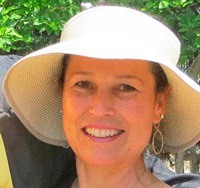You know that feeling when you are about to walk into something you believe will be overwhelming?
I remember when I was a kid that my dad would say “we need to talk” just before launching into a truly unwelcome conversation, and that my shoulders would hunch and my stomach tie up in knots.
That feeling of impending doom occurs when starting a new job or meeting an important person who might have a lasting career influence. Or when walking into the room of a patient who is slowly but surely being dragged down by a disease whose course is immutable.
Thirteen years of walking into nursing homes, assisted living facilities, and people’s homes as a doctor doing house calls never dulled that sensation of needing to take a deep breath, not knowing what I would encounter on the other side of the door.
Medical school failed to teach me the art of maintaining emotional separation from the “we need to talk” person; my patients always possessed the ability to evoke in me disquieting emotions similar to those that my father used to elicit when we had to have a difficult conversation.
What I succeeded in learning during my tenure on the home-visit team was the art of listening, not just with my ears but with my heart, and to keep my own opinions to myself.
That is what my dad needed me to do all those years ago: just listen to his lecture and not make excuses about what I had done (or not done). So, why is it so difficult to listen to other people’s needs?
Evidently it’s a problem not particular to kids. Which is why the state of Washington voters decided, in 2008, to pass the Death with Dignity Act, allowing adults being dragged down by an incurable illness to end their own lives.
Everything I was taught focused on cure, so I cannot begin to describe how difficult it was to face another human being whose physical existence steadily eroded while their awareness remained intact, and to have no source of medical solace to offer. But our egalitarian voters placed control in the hands of the individual actually traveling that final path.
It’s not about me the doctor; it’s about another person being allowed to have dignity as their life comes to an end.
How does that work? And, to whom does it apply?
If you have questions like these, or others, please join Hospice of San Juan’s “Coping with Change” series (funded in part by SJI Community Foundation) on Wednesday, March 18, 6-7:30 p.m., in the Library Community Room.
Attorney Carla Higginson, a fifth-generation Islander who has been in practice in Friday Harbor since 1980 (she incorporated Hospice of San Juan in 1984 and has continued as its volunteer attorney since then), will be discuss the Death with Dignity Act.
It’s time to walk into something with your ears and heart open.
— Editor’s note: Mariluz Villa, president of Hospice of San Juan board of directors, is board certified in internal and geriatric medicine, as well as in hospice and palliative care.



